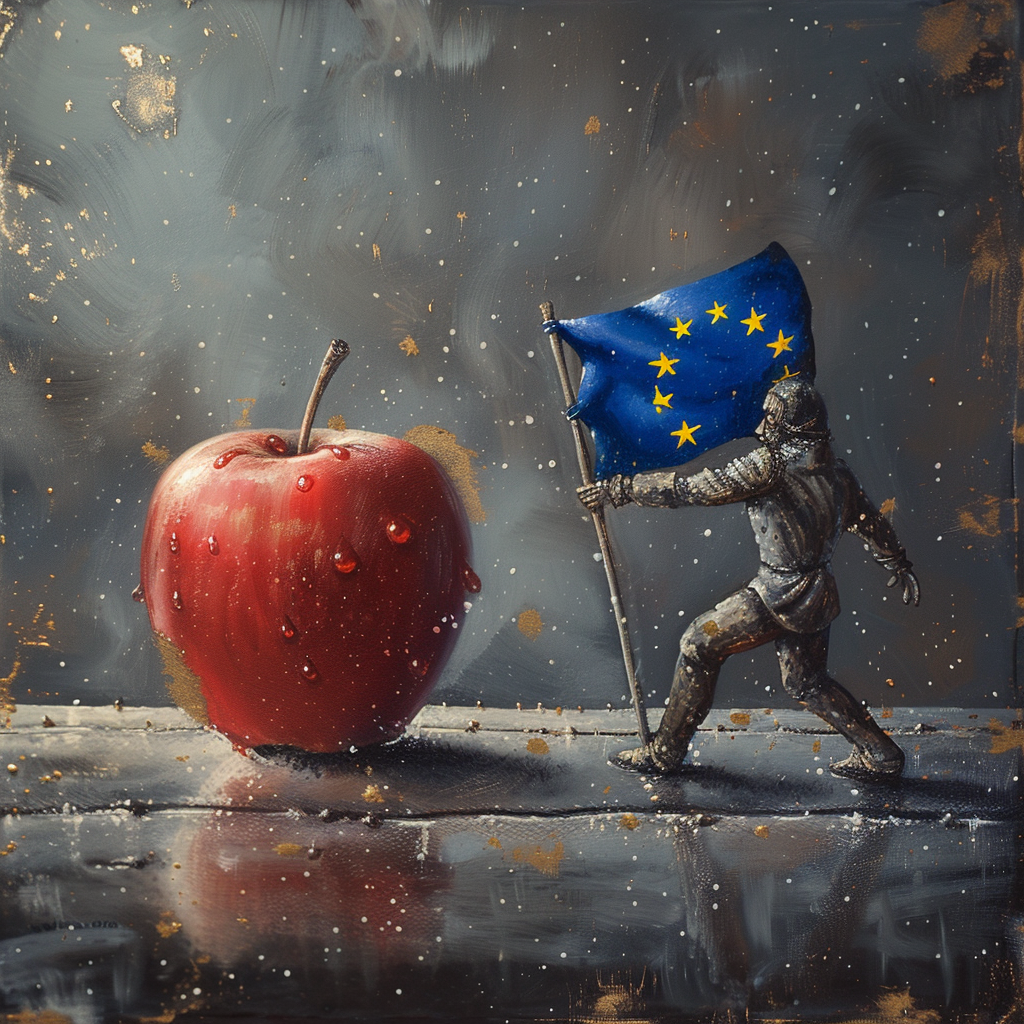Stick to Stick Combat

After the news broke yesterday – on a Friday afternoon, no less – that Apple has decided not to roll out several new software features to their user base in the EU, the internet immediately seem to fracture into a few camps:
- Those who see Apple doing this as a way to regain some leverage over the EU, which has been coming after Apple particularly hard in the DMA implementation cases. This was my quick take yesterday.
- Those who see Apple doing this because they can't reasonably launch new software features under threat of fines if the EU decides post-launch that they're non-compliant. This is the take Apple is trying to highlight in their own messaging on the topic, of course.
- Those who think this is exactly what the EU is hoping for with the DMA rules. Control over Apple, in a way. So the DMA is clearly working.
- Those who think this is a good thing in this particular case because AI is potentially powerful and dangerous and should be regulated from the start.
There are a few other flavors in there, some mixing-and-matching of the above, but those are the general groups I see arguing right now. Taking a step back, I think this boils down to two things that can be true:
That it would be foolish of Apple to launch any new features for their devices in the EU given the uncertainty around compliance with the DMA rules. And that Apple knows that holding back new features from their devices is a point of leverage over the EU regulatory body that seems hellbent on regulating Apple.
What I don't believe is that the EU is actually happy about this. And I don't think this is a good thing, for anyone.
Let's just think about the ramifications here. If Apple starts holding back software from the EU while the rest of the world gets it, how are Apple users in the EU going to react? Some may be okay with this – in particular with the AI element here, as noted above – but the vast majority will be annoyed. Some may indeed switch to Android devices as a result, but the vast majority will instead blame the EU for implementing rules that make their experiences using Apple products worse or less useful simply because of where they live.
The EU's stance, of course, is that the DMA actually will make all products better in the long run because there will be more competition. That may very well be true on the fringes – retro game emulators being one key example so far – but overall, it almost certainly will not play out this way. Instead, the EU will simply become a place that gets new software late, if at all. And everyone will likely be worse off as a result because compatibility between users in different countries will become a nightmare. Silos which are already naturally in place due to distance will now be reinforced by software, reversing an incredibly empowering and unifying trend over the past many decades of technology.
And the companies creating such software, in this case Apple, will be less nimble when making new software because they'll necessarily get slowed down working in a far more piecemeal fashion to create different versions of code for different places. This has been happening for a while in various parts of the world for different reasons, but the DMA will force this to happen at scale. The term "stifling innovation" gets thrown about a lot these days from the side of the regulators. But these companies bogged down in such bureaucracy sure sounds like the very definition of the term.
Boo-hoo, right? No one feels bad for multi-billion and now multi-trillion dollar massive corporations. But we're all likely to suffer as a result as the end products will suffer as a result. The EU is going to feel this more acutely at first, but we'll all feel it eventually. Or rather, even worse, we won't because sadly, we won't know what could have been had these changes not been put in place.
So again, part of this has to be Apple attempting to wield a stick here, to fight back against the changes, which they clearly care deeply about. They care about their ability to innovate, of course. But they also talk non-stop about their ability to protect their users. And yes, they care about making money. Regardless which element they care about more, they do care about all of the above, and it's all being threatened, and so they will feel the need to fight back. And the best way to do that isn't in the actual courts, it's in the court of public opinion.1
Again, if Apple products are worse in the EU than in the rest of the world, with millions of constituents constantly complaining about it, this is not a situation the EU wants to find themselves in. And you can tell that just from their brief statement on the matter:
"The EU is an attractive market of 450mn potential users, and has always been open for business for any company that wants to provide services in the European internal market.
Gatekeepers are welcome to offer their services in Europe, provided that they comply with our rules aimed at ensuring fair competition."
That's basically the EU saying that Apple would be stupid to give up on trying to access 450 million potential users for their products. Do you hear that, "Gatekeepers"? Apple, of course, knows this. It's a slight risk, but it's also far less of one than it may seem on the surface since many of the "Apple Intelligence" features aren't coming until next year anyway, and all of them will be English-only to start. If, say, there's a change of heart within the EU alongside a change of leadership. Well, maybe we can revisit this all in a year or so?
The timing of this all isn't a coincidence either. Again, it was released on a Friday afternoon, just as the US markets were closing, a week after WWDC ended. Apple could have announced this policy during the conference, but it clearly would have dampened the otherwise state of euphoria around AI. And it came exactly one week after the EU leaked out word that they were going to go after Apple for still being in breach of DMA rules, despite the changes they attempted to make. They're basically fighting in the pages of The Financial Times.
And now they're both fighting with sticks.

1 Also why Apple has been rather foolish not to help themselves more in the eyes of developers by proactively changing some of the outdated App Store rules.
